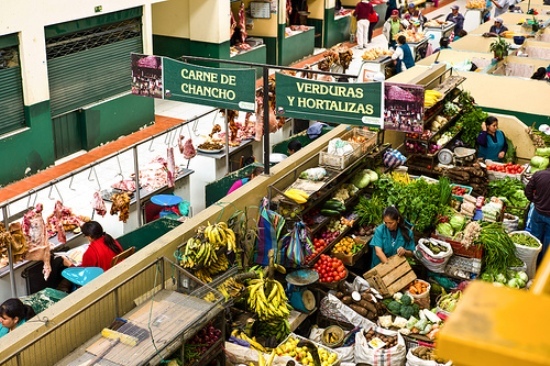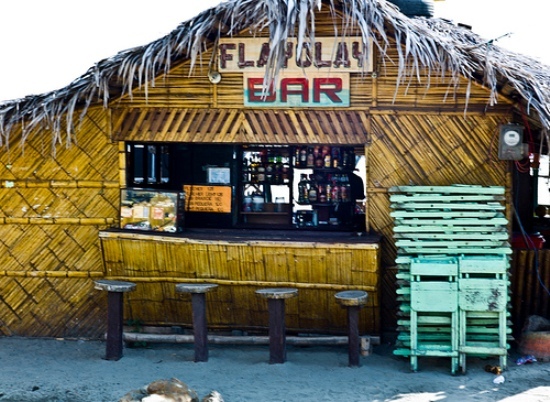Soap is our friend because money is filthy. We'll come back to that. But first...
One of the joys (and challenges) of moving overseas is being forced out of your habitual comfort zones.
On the one hand, leaving your comfort zones can lead to some pretty enlightening knowledge about yourself and the things you may have come to take for granted in life.
On the other hand, it can make you sick... because one of those comfort zones you leave behind could be the one where you are confident about the safety of your food and water.

Photo courtesy of Hugo Ghiara, InternationalLiving.com
"Don't drink the water" used to be a standard mantra for expats and travelers, and the expat universe is rife with graphic stories about the gut-wrenching results of eating from the carts of street vendors or at dodgy beachfront seafood shacks or drinking suspect tap water.

Photo courtesy of Hugo Ghiara, InternationalLiving.com
Like most legends, the ones we call "Montezuma's Revenge" stories are based on kernels of truth. And like most legends, they tend to take on a life of their own, becoming more exaggerated and embellished with the retelling.
Don't get us wrong, we know lots of expats who acquired a case of the "trouble down below" from strange meals in strange places. Some of these cases can probably be attributed to unsanitary food or eating utensils or poor preparation.
But with the increase in world tourism and the advent of the Internet and websites like TripAdvisor, it's becoming more and more difficult for restaurants abroad to make their customers sick and still stay in business. It's also becoming more and more difficult to travel abroad without hearing beforehand about the trouble spots and sanitation failures of certain destinations on the local blogs, Facebook pages, and bulletin boards. And many countries now have safe tap water.
It's certainly still possible to find a place to eat overseas that will make you sick, but over the past dozen years of living in and traveling around Latin America, we've found that many of the stomach problems expats get come from two common sources that have nothing to do with poor food preparation or foul water.
The first source of trouble isn't bad bugs, it's different bugs. There is microscopic flora and fauna on and in everything, including the food you ate back home and in your own gut. Your gut is used to its normal residents and the ones it normally meets on what you normally eat.
When you start sampling the offerings of other locations and climates, that food will naturally have a different set of resident flora and fauna. Not necessarily bad bugs... just different from the ones your gut is familiar with. This can cause some dissension for a while until the bugs in your gut adjust themselves to the local ecosystem. We've found this especially true for dairy products, whose resident bugs can vary dramatically from location to location.
We've traveled around so much in the past 12 years that we're afraid to imagine how colorful and varied a population are the current residents of our digestive tracts... but we rarely get sick anymore no matter where we go or what we eat... within reasonable limits. (For some reason, one of us can eat ceviche of any kind with impunity. The other has learned that they are permanently off the menu.)
The other major source of trouble we've found in our travels is one that you probably have in your purse or pocket right now... money.
Money is filthy. It is the repository for every germ from every hand it has passed through since it was printed or minted. Don't think about that for too long. Just consider all the weird places that you have ever kept or found money and all the strangers that you have exchanged it with, and remember that money is never, ever intentionally washed at any point during its lifetime.
So the dirtiest thing you'll probably put in your mouth today is your own fingers, unintentionally, at some point after handling money. And this is true no matter where in the world you are or what you just had for lunch or dinner.
That's why we've developed an obsessive hand-washing habit. And since we've found that most of the restrooms we visit around the world either have no soap or have had the soap stolen out of them by the time we get there, a small bottle of sanitary hand gel is always on board.
Money is a necessity, but soap is your best friend.